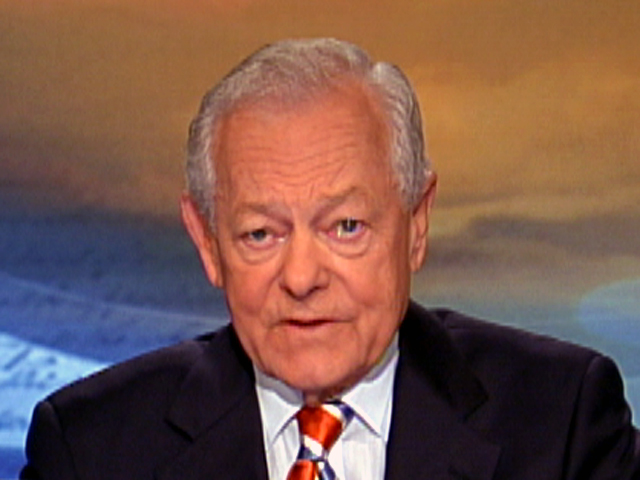CBS News’s Bob Schieffer, who will moderate Monday’s foreign policy debate, announced last week that China will be one of topics he will have President Barack Obama and Mitt Romney address.
China is a particularly timely topic, given that a recent Government Accountability Institute (GAI) report that found Obama’s campaign website may be vulnerable to foreign donations–and deliberately so. In addition, there have been recent reports that the Chinese government may be actively spying on nearly every American industry.
That makes China’s potential for exploiting loopholes in U.S. campaign laws to influence elections and undermine America’s sovereignty a topic of foremost concern.
It is illegal for foreigners to donate to campaigns or campaigns to knowingly solicit donations from foreigners. Yet the New York Post reported on Sunday how easily a British national illegally donated $10 to Obama’s campaign, which means millions of Chinese–and other foreigners–can do the same.
And because U.S. campaign finance law does not require campaigns to publicly disclose donations under $200, these potential foreign donations can conveniently fall through the cracks, especially when a campaign like Obama’s seems to only take the most minimal security precautions against such illicit donations.
Chris Walker, a British citizen who lives outside London, told the Post he made two $5 donations to Obama’s campaign this month while “a similar attempt to give Mitt Romney cash was rejected.”
Romney’s campaign most likely denied Walker’s donation because, as a GAI investigation discovered, Romney’s campaign uses a more secure Address Verification System (AVS) than the Obama campaign and uses the “CVV” security feature on its website while the Obama campaign pays millions in transaction fees, which defies logic, to turn off the security feature that requires users to enter a three or four digit code on the back of their credit card.
The vendor the Obama campaign uses to sell its merchandise, however, does use the CVV security feature, which means one must go through more security to purchase a campaign hoodie than donate $5 to the campaign.
“When I did Romney’s, the payment got rejected on the grounds that the address on the card did not match the address that I entered,” Walker told the Post. “Romney’s Web site wanted the code from the back of card. Barack Obama’s didn’t.”
Walker told the Post that when making his donation, he “used his actual street address in England but entered Arkansas as his state with the Schenectady, NY, ZIP code of 12345.”
Last month, GAI found “Obama’s reelection campaign took in $130,867 from donors who provided no ZIP code and $2 million from those with an incomplete ZIP” while “Romney’s campaign recorded $2,450 from donors without a ZIP code and $2,500 from those with incomplete ZIPs.”
That is a huge disparity. Based on donations that needed to be legally reported, the Obama campaign received more than $2 million in donations that should have been rejected while Romney’s campaign only received $5,000 in such donations.
The Obama campaign claims to use the Address Verification System (AVS), but September’s FEC reports proved the campaign uses one of the weakest AVS security features–if it uses one at all–because most retailers with decent AVS security features would not have accepted funds from people who provided a four-digit zip code.
Obama spokesman Michael Czin said the errors were the result of a “a minor technical error” and “all the ZIP codes and numbers are real and can be verified.”
After Walker’s donation went through to Obama’s campaign, he received two to three solicitations a day to donate $188 or more. The $188 figure is curious because donations under $200 do not have to be reported. Since Walker had donated $10 already, if he donated $188 more, he would have given a total of $198, which would be just under the $200 mark–and would not have to be disclosed.
The revelations in the Post report give more credence to GAI’s findings and the potential for massive foreign donations that can influence elections while going undetected.
GAI discovered nearly half of the traffic to Obama’s campaign website comes from foreign IP addresses (on average, other campaigns receive less than 10% of their traffic from foreign IP addresses). GAI also found that much of that traffic to Obama’s official campaign site comes from Obama.com, a site the campaign curiously does not own, but which redirects visitors directly to the Obama campaign’s donation page.
Foreigners in Asia, Europe and the Middle East, like Walker did, have bragged on blogs and social media websites about donating to the Obama campaign and receiving numerous solicitations from the campaign to donate more.
More curiously, Obama.com is owned by Robert Roche, a top Obama bundler who lives in Shanghai and co-founded Acorn International, a conglomerate that is dependent on Chinese state-owned banks telecommunication networks. Roche has visited the White House more than a dozen times, was seated at the head table at the 2011 China State Dinner with the Obamas, Clintons, and Chinese President Hu Jintao, and was a part of Vice President Joe Biden’s delegation to China in 2011.
Media outlets have not been able to reach Roche for comment and the Obama campaign will not comment on Roche’s ties to China and the administration.
On Monday, Schieffer can ask Obama before a national audience about Roche and how Obama’s campaign may be funded by and vulnerable to illicit foreign contributions. And if he does, Obama will not be able to hide from those questions.

COMMENTS
Please let us know if you're having issues with commenting.